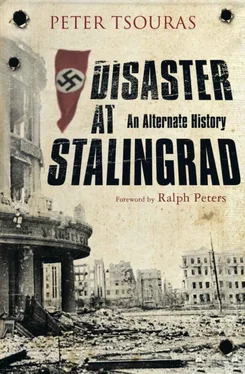Molotov was not even allowed to beg for terms. They were thrown in his face as the Celtic conqueror of Rome, Brennus, had thrown his sword on the tribute scales, saying ‘Vae victis!’ (‘Woe to the conquered’). Always one for cloaking an event in a precedent of the past, Hitler had chosen Brest-Litovsk as the site of the peace conference between Germany and the Soviet Union, or rather as the place where he would dictate terms. He had done the same at Compiègne in France, choosing the same railroad car in which the victorious allies of World War I had forced a humiliating armistice upon the Kaiser’s army in November 1918. Brest-Litovsk had been the place the Imperial German Army had dictated peace to a broken, revolution-convulsed Russia in the winter of 1917–18. Hitler savoured the fact that the second treaty was an even twenty-five years after the first act and on the same stage.
As to the terms, they were worse than 1917-18. The Soviet Union would lose the Ukraine, Belarus, the three Baltic states, Moldova, the Caucasus, the three Transcaucasian Republics, the Kuban, and the vast area from Stalingrad to the Caspian Sea. The Finns would recover all the territory that they had lost in the Winter War of 1939-40 and more, and Romania would receive Moldova. Turkey’s spoil would be large chunks of Georgia along the Black Sea coast, and all of Azerbaijan, but not the oilfields around Baku. Germany would keep the rest. Lithuania, Latvia and Estonia as well as the Crimea would be absorbed into the Reich proper. Belarus, the Ukraine, and the Kuban would be administered as conquered territories in accordance with Hitler’s Lebensraum policy. Georgia and Armenia would become German client states. A special demand that heaped the bitterest humiliation on the Russians was the surrender of Leningrad. Hitler was determined to deny a broken Russia an outlet on the Baltic. In any case, there would soon be no city there. He was going to level this symbol of Russia’s great power status established by Peter the Great when he built the city in 1712. More important by far was his vengeful will to smash utterly the cradle of Bolshevism. 2
Evil had triumphed.
Toulon, 23 November 1942
Major Fölkersam enjoyed playing dress up. Perhaps it had something to do with the nature of the Brandenburgers’ special operations mentality. He had earned a promotion and a Knight’s Cross after the coup de main at Maikop for dressing up like an NKVD officer. For the Soviets it had been a very stylish uniform. But it did not hold a candle to the uniform of an SS officer that he now wore. He had to admit it was a splendid fashion statement. He actually preened himself in the mirror that morning, admiring himself in his black and silver.
Now he was standing by the roadside in the leafy outskirts of this French city looking every inch the SS Sturmbannführer. At least the Knight’s Cross at his throat was real. His detachment of Baltic Germans, also dressing the part, manned the checkpoint. Every man had been with him at Maikop. He looked at his watch. It had been more than convenient that Heydrich was a man of rigid pattern. It had nearly cost him his life when the British had sent their assassination team to Prague. Like clockwork he left his residence at precisely the same hour every day and drove down precisely the same route without escort. He was telling the Czechs he despised them. Only he had the devil’s own luck to be unexpectedly out of town that day they lay in wait for him. Heydrich was the living embodiment of the German saying, ‘Ordnung muss herschen’ (‘Order must rule’).
That he would be travelling down this road today was something that had not been overlooked. Canaris had kept a finger on his every movement, something he kept Fölkersam constantly aware of. The major looked at his watch again just as the black car with its SS flags turned round a bend in the road. ‘Just like clockwork, indeed.’ he said to himself. The car was without escort, an act of bravado Heydrich had used as he had driven through the streets of Prague. ‘You make this too easy.’
The car slowed as it approached the checkpoint. Fölkersam’s men jumped to attention, as the major met the car just as it stopped. He gave a terrific Hitler Gruss stiff-armed salute. ‘Herr Obergruppenführer, my apologies…’
The rear passenger window unrolled. Heydrich’s long face coldly looked at him. Fölkersam never forgot the look he saw on that face in the moment before he shot it between the eyes.
Stalingrad, 23 November 1942
Evil now walked through the ruins of Stalingrad savouring his victory. Around him stretched a vast sea of broken brick and concrete, with only the department store shell in any recognizable form. From its balcony flew a huge swastika. The only thing to mar Hitler’s triumph was the smell of rotting corpses, though the snow had done much to cover it. In an act of personal cruelty, he had ordered that the captured commander of the Soviet defence be there to watch him strut his triumph and rub it in the abject man’s face. Manstein had been appalled and personally offered Chuikov his apologies.
Hitler motioned his SS bodyguard and the flock of sycophants to stand back as he walked into the square in front of the building. It was obvious that Goring, Himmler and Bormann were disappointed that they could not share this historic moment and be photographed at his side. It was not sentiment, but the opportunity to be seen as sharing in the victory and ultimately inheriting it.
It could have been lucky for them, though, if they had taken their chance to hang well back in the crowd. Oberjäger Pohl’s instructions were to take out as many of these others as he could after killing Hitler. His presence had been passed off to the SS security detail as cover for any Soviet snipers who might have been left behind. He had a clean shot now from a rubble pile 300 yards away as Hitler conveniently stepped out from the crowd. 3
That same thought occurred to Zaitsev. He was hiding in a large pipe about the same distance from Hitler but to the north. Now his sights centred on the forehead of the Fascist beast. He adjusted for the cold wind that was whipping through the ruins. The image of one of his mother’s icons flashed through his mind. It was St George spearing the dragon. 4
The cold wind, Russia’s last desperate resistance, cut through Hitler’s greatcoat. But for Hitler it only served to excite the Wagnerian moment as it drove grey clouds through the sky. He could picture the Valkyries riding through the storm-tossed sky with the bodies of the new German heroes thrown over their saddles being borne to Valhalla. Again he had been right, and all his generals had been wrong. He could feel the power surge in him.
Then nothing. His head exploded. Two bullets were fired at the same instant. Pohl’s hit him in the forehead, and Zaitsev’s through the right temple. Blood and brains sprayed over the rubble.
The crowd heard the double crack and watched as Hitler’s body twisted and jerked and then fell to the ground. For that stunned instant no one moved. In that suspended time Pohl’s sight centred on Himmler, who stood out with his flock of retainers. He fired at the moment when the crowd surged forward. It was a hard shot as bodies flowed around him, but the Reichsführer threw his arms back as a bullet went through his right eye. 5
Zaitsev, less familiar with the Nazi hierarchy, merely kept firing at the gaudiest of the uniforms milling around. Goring was conspicuous with his white overcoat and flashing baton; his peacock preening was his undoing. A Russian bullet struck him in the chest, and he fell with such a thud that he made the rubble bounce and brought down two of his aides. Manstein stepped aside as another Nazi party bigwig in his flashing uniform fell in front of him. He felt strong arms on him as Stauffenberg and his own aide pulled him back to the shelter of the building as the horde of courtiers fled for their cars. Major von Boeselager caught one of them by the arm, put a pistol to his stomach and fired. Martin Bormann screamed and careered off to stumble and fall amid the rubble.
Читать дальше












